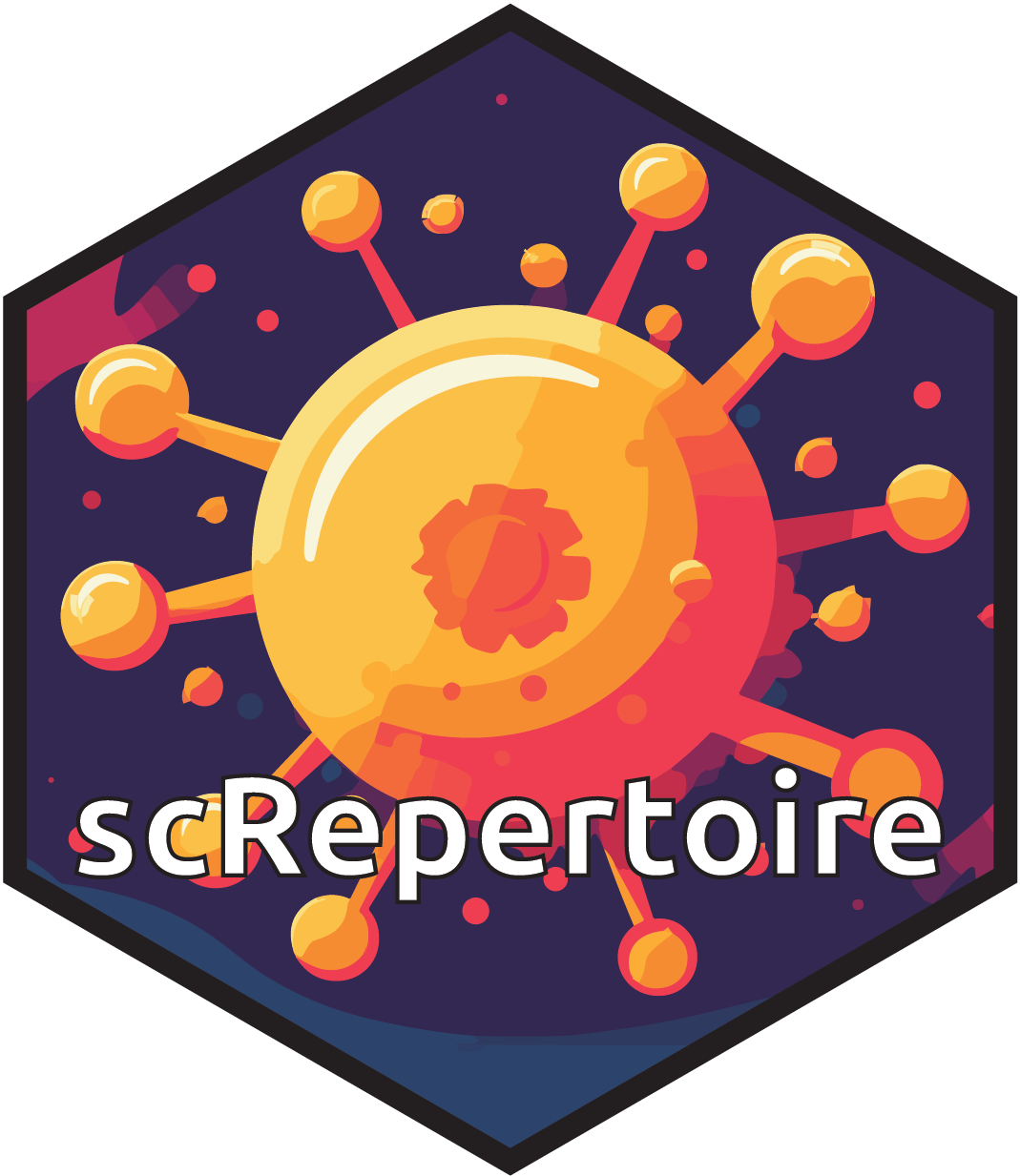Single-cell sequencing is an emerging technology in the field of immunology and oncology that allows researchers to couple RNA quantification and other modalities, like immune cell receptor profiling at the level of an individual cell. A number of workflows and software packages have been created to process and analyze single-cell transcriptomic data. These packages allow users to take the vast dimensionality of the data generated in single-cell-based experiments and distill the data into novel insights. Unlike the transcriptomic field, there is a lack of options for software that allow for single-cell immune receptor profiling. Enabling users to easily combine RNA and immune profiling, the scRepertoire framework supports use of 10x, AIRR, BD, MiXCR, Omniscope, TRUST4, and WAT3R single-cell clonal formats and interaction with popular R-based single-cell data pipelines.
scRepertoire is compatible and integrated with the R packages Trex for deep-learning-based autoencoding of the T cell receptor and Ibex for the B cell receptor. If you are interested in making your own deep-learning models with immune receptors, please see immApex.
scRepertoire has a comprehensive website for detailed tutorials and function information.
devtools::install_github("ncborcherding/scRepertoire")The current version of scRepertoire is also available on Bioconductor.
if (!require("BiocManager", quietly = TRUE))
install.packages("BiocManager")
BiocManager::install("scRepertoire")If you are looking for version 1 of scRepertoire - there is a static version available below:
devtools::install_github("ncborcherding/scRepertoire@v1")Unfortunately, Github limits the size of individual files. In order to access the Seurat object paired with scRepertoire please download the .rda from here.
If you run into any issues or bugs please submit a GitHub issue with details of the issue.
- If possible please include a reproducible example. Alternatively, an example with the internal scRep_example and contig_list would be extremely helpful.
Any requests for new features or enhancements can also be submitted as GitHub issues.
Pull Requests are welcome for bug fixes, new features, or enhancements.
We are working on submitting the scRepertoire v2 as a peer review article. For now, please cite scRepertoire using the doi from Bioconductor.
Borcherding, N, Yang, Q, & Safina, K. (2024). scRepertoire v2: A toolkit for single-cell immune receptor profiling. DOI: 10.18129/B9.bioc.scRepertoire
If you are building your own tool based on scRepertoire, reach out, I am happy to help and make things compatible.

